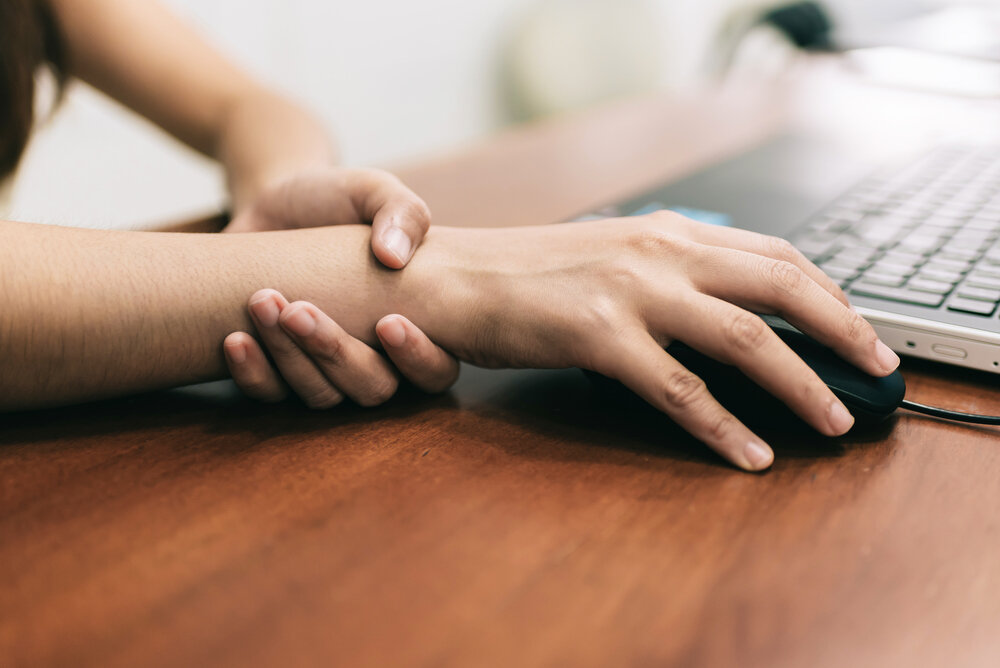Stiff hands may have a negative impact on one's quality of life, whether it's a minor inconvenience or a major impediment. Stiffness may be caused by a variety of things, like an accident, tendonitis, arthritis, or other things. A hand surgeon will help you figure out what's causing your problem and develop a recovery plan that includes things like home workouts, hand therapy, injections, and, in some cases, carpal tunnel treatment surgery.
My finger was stuck recently, but it's still rigid. What's the best way to get things going again?
After a finger injury, it's normal to experience stiffness. The ligaments that cover a joint partially break when you jam (sprain) your finger while playing basketball, for example. Ligaments thicken and become less flexible as a result of the healing process for a stuck finger. If motion and strengthening exercises are not begun as soon as possible after what appears to be a mild injury, it can lead to discomfort in a matter of days to weeks. Hand therapy is also effective in treating this form of stiffness. However, it can be difficult to tell the difference between a mild sprain and a more severe injury. X-rays may be needed to rule out a more severe injury, such as a fracture or dislocation. The best treatment is determined by a hand surgeon followed by carpal tunnel treatment surgery.

Why do my hands feel rigid when I wake up in the morning?
Hand stiffness can be worse in the morning in some cases. Trigger finger, for example, is a common tendonitis that can result in clicking, trapping, or locking, as well as a rigid or stuck finger that doesn't move entirely. If the stiffness is accompanied by finger numbness and tingling, carpal tunnel syndrome may be the cause. Another source of generalized hand stiffness is long-term diabetes. Morning stiffness may be caused by osteoarthritis of the small finger joints as we age. Finally, inflammatory disorders like rheumatoid arthritis and psoriatic arthritis may cause hand stiffness in addition to other symptoms and signs. In short, stiffness can be a sign of a variety of disorders, so it's best to seek advice from a hand surgeon or your primary care physician to determine the best course of action.
My fingers don't fully straighten out. What really is going on?
You could have Dupuytren's contracture if you can make a fist but cannot straighten fingers. This disorder causes lumpy, bumpy palm thickening, which may resemble callouses. Over months or years, the bent posture progresses at a different rate. The finger location makes it difficult to shake hands or reach into pockets. A hand surgeon will diagnose this condition and may suggest carpal tunnel surgery for both hands.
What drugs, creams, and home remedies are effective for treating hand stiffness?
It is determined by the diagnosis. Your primary care physician or a hand surgeon will make a diagnosis and, if necessary, prescribe an oral or topical prescription. Warm water can be beneficial to patients with arthritis or other forms of stiffness. Splints and braces are mostly ineffective, although there are exceptions.

Will my hand stiffness necessitate surgery?
In the vast majority of cases, the answer is no. Many causes of hand stiffness can be treated by addressing the underlying medical condition or doing exercises under the supervision of a hand therapist. A steroid injection or similar treatment may be appropriate in some cases. Carpal tunnel treatment surgery exists for Dupuytren's contracture. When stiffness remains and no other non-surgical interventions are likely to help, surgery may be considered. Follow us Neuroscience Specialists in OKC for the said treatment.
**Disclaimer- Information presented here is not intended to be qualified medical advice. Nothing expressed herein creates a doctor-patient relationship.

